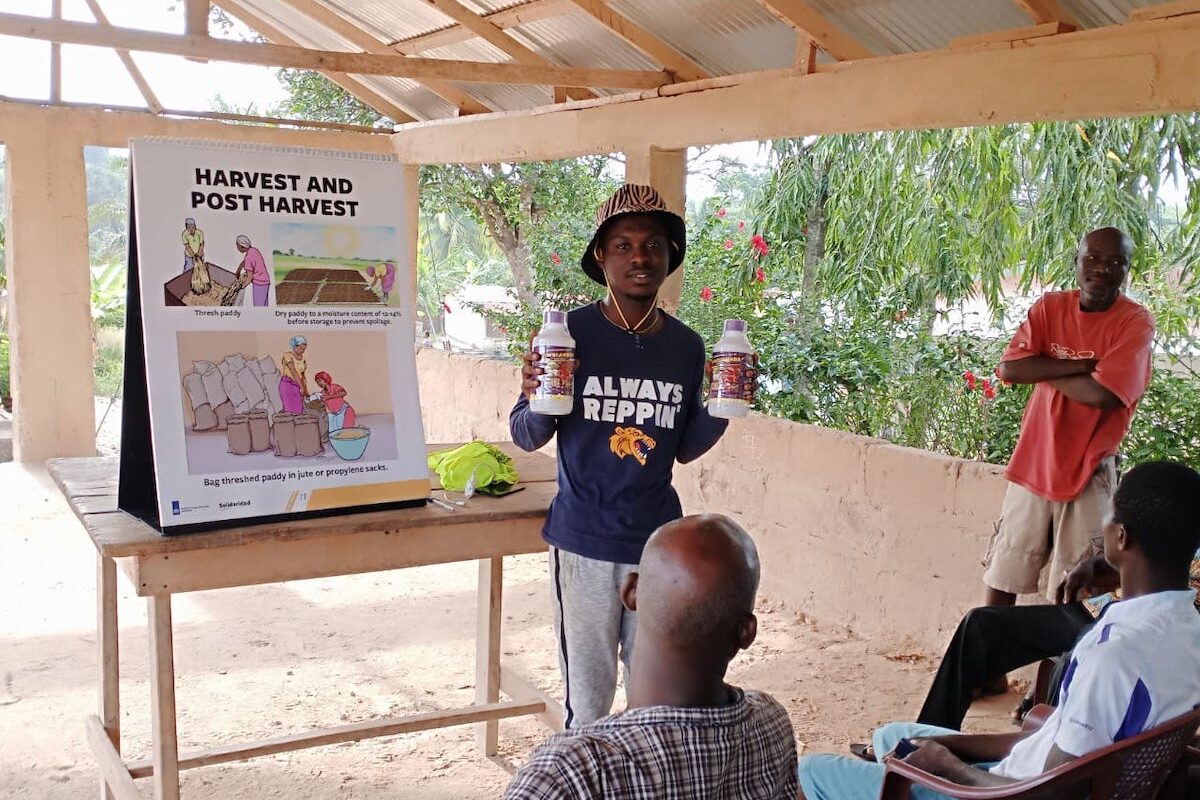Farmers from Ghana’s Tarloykrom community train to improve their agrochemical use and increase their harvests.
In Ghana, a changing climate marked by unpredictable rainfall, and prolonged dry spells and soaring temperatures, poses a significant threat to food production. Smallholder farmers’ reliance on rain-fed agriculture has rendered the sector vulnerable, resulting in poor yields and depleted stocks that have compromised household food security.
In a bid to mitigate the impacts of climate change and enhance food security, Solidaridad’s Acting Now project is providing climate-smart agricultural training for 9,000 food crop farmers across 145 communities in the Eastern, Central, Ashanti, Ahafo and Northern regions of Ghana.
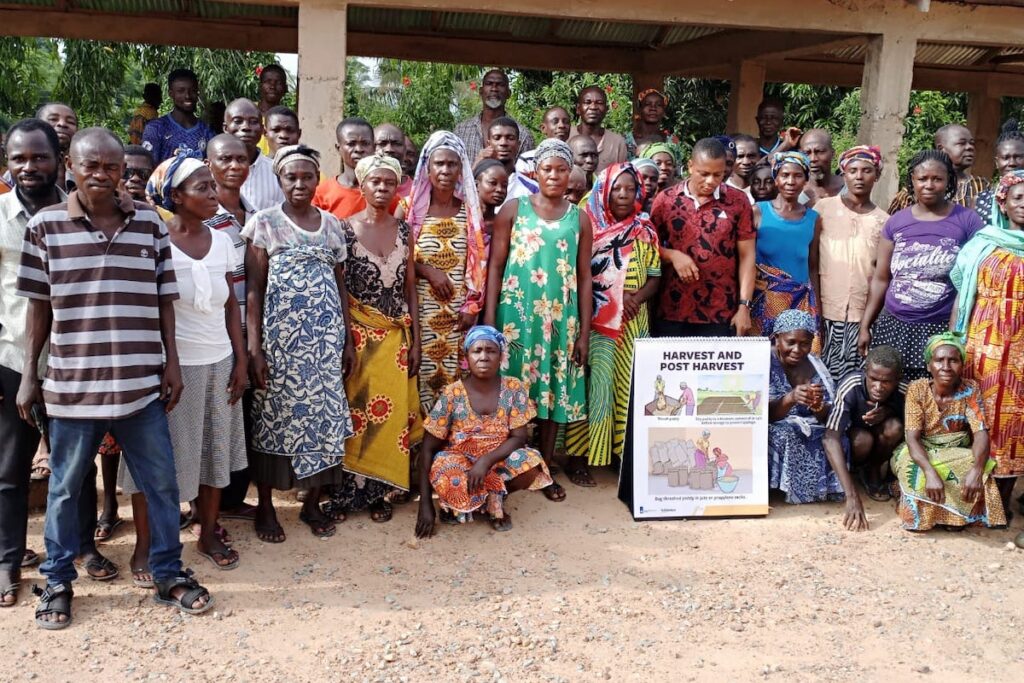
The project’s goal is to equip rice, maize, and vegetable farmers with an understanding of the negative impacts that conventional production methods – such as clearing land with fire and the use of herbicides – have on the environment, soil fertility and their livelihoods.
The training is being conducted over four months ending in July and covers several modules such as: seed selection, land preparation, irrigation, pest and disease management, plus harvest and post-harvest practices.
I now understand how detrimental burning is to my soil and its contribution to climate change. I’ve learned about an alternative practice called “proka” [slash and mulch]. From now on, I will leave the heaps of weed on my farm to serve as mulch and help to conserve moisture in the soil.
Abdul Latif, a farmer from Twifo Aboabo in the Central region
Bismark Odum, Programme Officer for Acting Now, indicated that the training exercise includes a practical demonstration where farmers can both observe and gain hands-on experience. This approach, he said, helps farmers adopt best practices to improve their production, while ensuring better yields and enhanced food security.
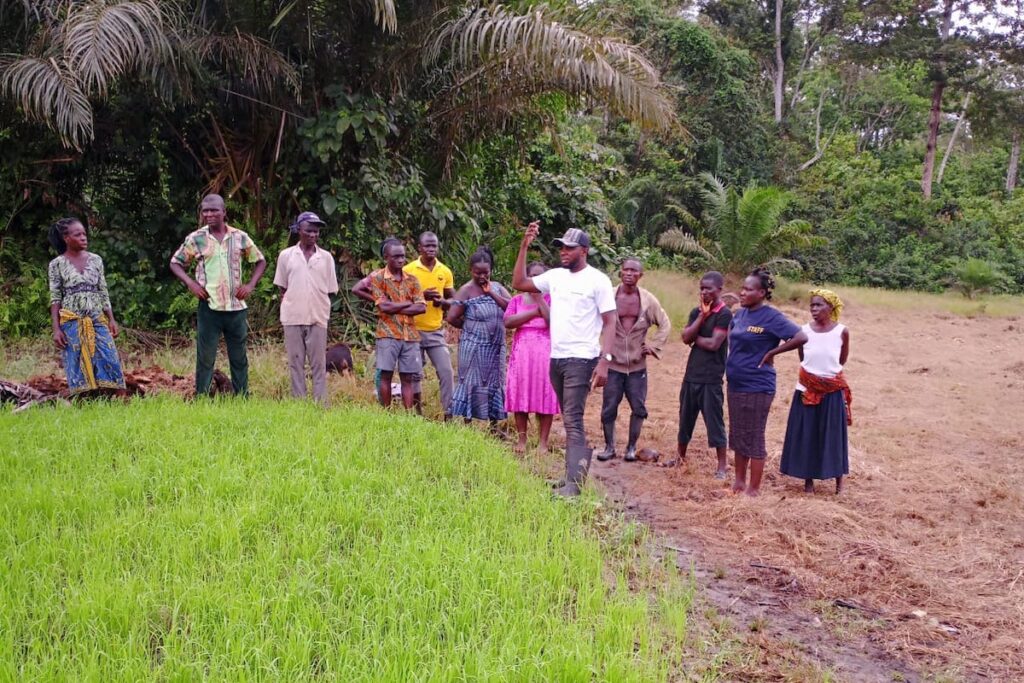
A baseline study for the project indicated that smallholder farmers in the implementing areas have much lower yields per hectare for rice (1.64 metric tonne/ha) and maize (1.16 metric tonne/ha) compared to global averages of (4.7 metric tonne/ha for rice and 5.7 metric tonne/ha for maize) and national averages (4.2 metric tonne/ha for rice and 2.5 metric tonne/ha for maize). This gap underscores the need for improved agricultural practices and knowledge dissemination, Bismark intimated.
To facilitate the further deployment of the training, Solidaridad trained an additional 38 agricultural extension agents to deliver the training modules to the farmers.
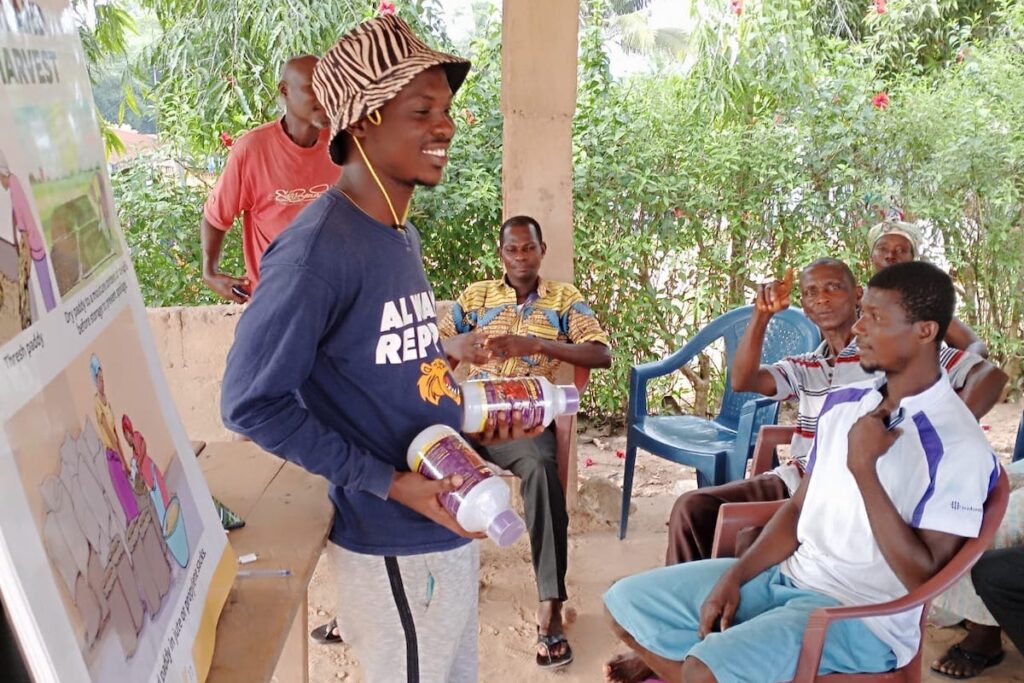
Linking farmers to service providers
The training also featured business-to-business sessions that connected farmers with reputable input and agrochemical suppliers in an effort to address gaps in farming services and inputs.
The sessions facilitated direct engagement with input dealers in capital cities who provided training on specific inputs and tools, and the establishment of retail points within the farmers’ communities. By establishing local retail points, farmers can reduce the need to travel to district capitals for tools and inputs.
The input dealers were profiled and selected based on key indicators such as accreditation from statutory bodies on quality, authenticity of inputs and tools, geographical location, nature of service, type of inputs provided, and their willingness to establish retail points and participate in B2B sessions.
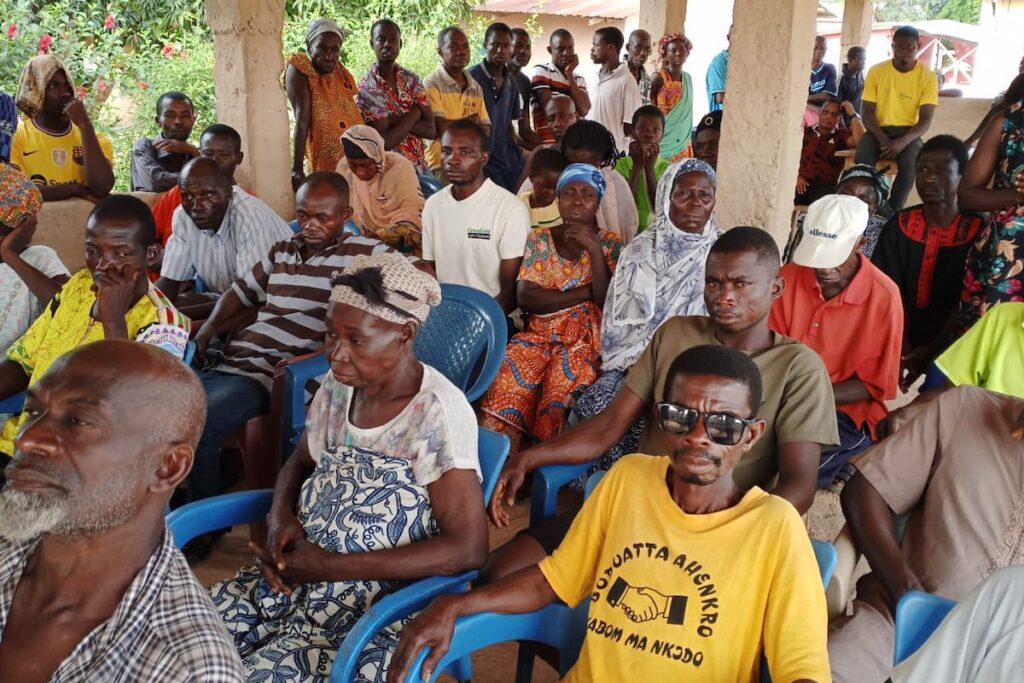
The project has onboarded over 30 service providers, including seed distributors, fertilizer distributors, plant protection product distributors, farming tools distributors, and farm mechanization services.
Acting Now
Through the Acting Now programme, Solidaridad aims to create a sustainable and resilient agricultural sector in Ghana that supports 18,000 farmers (7,500 rice, 7,500 maize and 3,000 vegetable farmers) with the knowledge and resources needed to thrive in the face of climate change.
The programme is funded by the Dutch Ministry of Foreign Affairs as part of a comprehensive effort to address food insecurity associated with poor production practices and bridge the information and knowledge gap identified by the farmers in the implementing countries.

